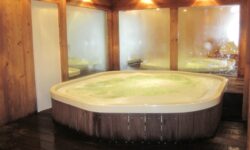Plott Nursing Home ⏬⏬
Welcome to Plott Nursing Home, a reputable and compassionate care facility dedicated to providing exceptional services for elderly individuals in need of specialized care. Our mission is to create a warm and nurturing environment where residents can thrive physically, emotionally, and socially. With a team of highly trained healthcare professionals, state-of-the-art facilities, and a person-centered approach to care, we strive to ensure the well-being and comfort of our residents while promoting their independence and dignity. At Plott Nursing Home, we understand the importance of personalized attention and aim to deliver the highest standard of care to each individual entrusted to us.
Plott Nursing Home
The Plott Nursing Home is a reputable long-term care facility located in [insert location]. It provides comprehensive and compassionate care for elderly individuals requiring assistance with daily activities, medical supervision, and specialized services.
At Plott Nursing Home, the well-being of residents is of utmost priority. The facility boasts a dedicated team of healthcare professionals, including nurses, doctors, therapists, and support staff, who work collaboratively to ensure the highest standards of care are maintained.
One of the key features of Plott Nursing Home is its person-centered approach. Each resident receives individualized care plans tailored to their unique needs, preferences, and goals. This approach fosters a sense of dignity, independence, and respect for residents, promoting their overall physical, emotional, and social well-being.
The facility offers a range of services and amenities designed to enhance the quality of life for residents. These include 24-hour nursing care, medication management, nutritious meals, recreational activities, rehabilitation services, and access to medical specialists when needed. Additionally, Plott Nursing Home promotes a safe and comfortable environment for residents, ensuring their safety and security at all times.
Plott Nursing Home adheres to stringent regulatory standards and maintains high levels of cleanliness and hygiene throughout the facility. They also prioritize open communication with families and encourage their involvement in the care planning process, fostering a supportive and collaborative environment.
Nursing Home in America
A nursing home, also known as a skilled nursing facility or long-term care facility, is a residential institution that provides specialized care for individuals who require assistance with activities of daily living and medical support. These facilities cater to elderly individuals, especially those with chronic illnesses or disabilities.
In America, nursing homes play a crucial role in the healthcare system by offering comprehensive care services to older adults who may have complex medical needs. They provide round-the-clock supervision, medical care, assistance with personal hygiene, meals, social activities, and rehabilitation services.
One of the primary reasons individuals choose nursing homes for their loved ones is to ensure they receive proper medical attention and support. Skilled nursing staff, such as registered nurses and certified nursing assistants, are available to administer medications, monitor residents’ health conditions, provide wound care, and assist with mobility.
Nursing homes in America are regulated by federal and state laws to ensure the safety and well-being of residents. The Centers for Medicare & Medicaid Services (CMS) sets standards and guidelines that nursing homes must meet to participate in government-funded programs like Medicare and Medicaid.
However, it’s important to note that nursing homes in America have faced concerns and challenges related to quality of care, staffing shortages, and financial sustainability. Efforts are being made to enhance regulations and improve the overall quality of these facilities.
Choosing a nursing home for a family member requires careful consideration and research. Factors such as location, reputation, quality ratings, staffing levels, amenities, and cost should be thoroughly evaluated to ensure the best possible care for your loved one.
Senior Care Facility
A senior care facility, also known as a nursing home or assisted living facility, is a specialized residential setting that provides around-the-clock care and support for elderly individuals who require assistance with daily activities and medical needs.
These facilities are designed to create a safe and comfortable environment for seniors, offering various levels of care depending on the residents’ needs. The staff at senior care facilities includes trained caregivers, nurses, and medical professionals who ensure the well-being and quality of life for residents.
Senior care facilities typically offer a range of services, including assistance with bathing, dressing, medication management, meals, and mobility support. They also provide social and recreational activities to promote mental stimulation and social interaction among residents.
Additionally, senior care facilities often have dedicated areas or units for individuals with specific conditions such as Alzheimer’s disease or dementia, providing specialized care tailored to their unique needs.
Choosing a senior care facility requires careful consideration of factors such as location, cost, staff qualifications, safety measures, and the overall atmosphere of the facility. Families and individuals should visit potential facilities, ask questions, and review their policies and procedures to ensure they align with their loved one’s requirements.
Overall, senior care facilities play a crucial role in providing comprehensive care and support for elderly individuals, ensuring their comfort, safety, and well-being in their later years.
Long-term Care Facility
A long-term care facility, also known as a nursing home or skilled nursing facility, is a specialized residential setting that provides around-the-clock care and assistance for individuals who require extended medical and personal support. These facilities cater to individuals with chronic illnesses, disabilities, or functional limitations that prevent them from living independently.
Long-term care facilities offer a range of services to meet the diverse needs of their residents. They provide assistance with activities of daily living (ADLs), such as bathing, dressing, eating, and mobility. Additionally, these facilities offer medical care, medication management, rehabilitation therapies, social activities, and emotional support to enhance the overall well-being of residents.
The staff in long-term care facilities typically includes registered nurses, licensed practical nurses, certified nursing assistants, therapists, and other healthcare professionals. They work collaboratively to create personalized care plans, administer medications, monitor health conditions, and ensure the safety and comfort of residents.
Long-term care facilities often have various specialized units to address specific needs, such as memory care units for individuals with dementia or Alzheimer’s disease and rehabilitation units for individuals recovering from surgeries or injuries. Some facilities may also provide hospice care for individuals nearing the end of life.
Choosing a long-term care facility requires careful consideration of factors such as location, quality of care, staffing ratios, amenities, cost, and the specific needs of the individual. It is essential to visit and evaluate different facilities, review their ratings and reviews, and consult with healthcare professionals or social workers to make an informed decision.
In recent years, there has been a growing emphasis on person-centered care in long-term care facilities, aiming to promote autonomy, dignity, and quality of life for residents. Efforts are being made to create more home-like environments, foster individual preferences, and involve residents in decision-making processes regarding their care.
Assisted Living Facility: Enhancing Quality of Life for Seniors
An assisted living facility, also known as an assisted care residence or senior living community, is a specialized residential setting that provides assistance and support to older adults who require help with daily activities while maintaining independence. These facilities offer a comfortable and secure environment, promoting the overall well-being and quality of life for seniors.
One of the primary goals of an assisted living facility is to provide personalized care tailored to meet the unique needs of each resident. Trained staff members are available around the clock to assist with tasks such as bathing, dressing, medication management, and meal preparation. This level of support allows residents to maintain their autonomy while receiving necessary assistance.
The physical layout of assisted living facilities typically includes private or semi-private apartments or rooms, communal dining areas, recreational spaces, and common areas for socializing. These amenities foster a sense of community and encourage social interaction among residents. Many facilities also organize various activities, outings, and wellness programs to promote engagement and mental stimulation.
Assisted living facilities prioritize the safety and security of their residents. They implement measures such as emergency call systems, secure entrances, and trained personnel to ensure a safe living environment. Additionally, some facilities may have specialized care units for individuals with specific health conditions such as Alzheimer’s disease or dementia.
Choosing the right assisted living facility involves careful consideration of factors such as location, cost, services provided, and staff qualifications. It is essential to visit potential facilities in person, ask questions, and assess the atmosphere and overall suitability for individual needs.
Elderly Care Center
An elderly care center, also known as a senior or retirement home, is a specialized facility that provides housing and supportive services for older adults who may require assistance with daily activities and healthcare.
These centers are designed to cater to the unique needs of elderly individuals, offering a safe and comfortable environment where they can receive the care and attention they need. The goal is to enhance their quality of life, promote independence, and ensure their overall well-being.
Within an elderly care center, various services are provided, including:
- Assisted Living: This option is suitable for seniors who require some assistance with activities such as bathing, dressing, medication management, and meal preparation. They live in private or shared apartments within the center while receiving the necessary support.
- Nursing Care: Elderly individuals with more complex medical needs may opt for nursing care within the center. Skilled nurses and healthcare professionals provide round-the-clock supervision, medical monitoring, and assistance with medical treatments.
- Memory Care: Some elderly care centers specialize in providing care for individuals with dementia or Alzheimer’s disease. These dedicated units offer a secure environment and specialized programs to support residents’ cognitive and memory function.
- Social Activities: To promote socialization and engagement, elderly care centers often organize various activities and events. These can include exercise programs, arts and crafts, outings, and opportunities for interaction with peers.
Choosing an elderly care center involves careful consideration of factors such as location, amenities, costs, staff qualifications, and the specific needs of the individual. It is essential to visit different facilities, ask questions, and gather information to make an informed decision.
Overall, elderly care centers play a vital role in providing a supportive and nurturing environment for older adults, ensuring they receive the care and assistance they need to age with dignity and quality of life.
Retirement Home
A retirement home, also known as a senior living facility or retirement community, is a residential community specially designed for older adults who have retired from active work. These facilities provide various services and amenities to cater to the needs and preferences of senior citizens.
Retirement homes offer a range of housing options, including independent living units, assisted living apartments, and nursing care facilities. Independent living units are typically designed for residents who can live independently and prefer minimal assistance. Assisted living apartments provide additional support and services, such as help with daily activities like bathing, dressing, and medication management. Nursing care facilities offer round-the-clock medical care and assistance for individuals with more complex health needs.
Residents of retirement homes can enjoy a variety of amenities and activities tailored to enhance their quality of life. These may include common dining areas, fitness centers, recreational facilities, libraries, social events, and organized outings. Some retirement homes also provide specialized services like memory care for individuals living with dementia or Alzheimer’s disease.
Choosing a retirement home involves considering factors such as location, cost, level of care provided, available amenities, and overall atmosphere. It’s important to visit and evaluate different facilities, speak with staff and residents, and review contracts and policies before making a decision.
Retirement homes aim to provide a safe, supportive, and engaging environment where older adults can maintain their independence, receive necessary care, and enjoy their retirement years with peace of mind.
Nursing Home Services
Nursing home services provide specialized care for individuals who require assistance with everyday activities and medical needs. These facilities, also known as skilled nursing facilities or long-term care homes, offer comprehensive support to elderly or disabled individuals who are unable to live independently.
Table
| Services | Description |
|---|---|
| Medical Care | Nursing homes have trained healthcare professionals who provide round-the-clock medical care, including administering medication, monitoring vital signs, and managing chronic conditions. |
| Assistance with Activities of Daily Living (ADLs) | Staff members assist residents with tasks like bathing, dressing, grooming, eating, and mobility when they have difficulty performing these activities independently. |
| Rehabilitation Services | Nursing homes often offer physical, occupational, and speech therapy services to help residents regain or improve their functional abilities after an illness, injury, or surgery. |
| Social and Recreational Activities | Engaging programs and activities are organized to promote social interaction, mental stimulation, and overall well-being among residents. These may include games, arts and crafts, outings, and group exercises. |
| Dietary Services | Nutritious meals and dietary plans are provided to meet the specific nutritional needs of residents. Special diets can be accommodated based on individual requirements. |
| Housekeeping and Maintenance | Nursing homes ensure a clean and safe environment for residents by offering housekeeping, laundry services, and maintenance support. |
Skilled Nursing Facility: Providing Expert Care for Patients
A skilled nursing facility, also known as a nursing home or a long-term care facility, is a specialized healthcare institution that provides comprehensive medical and rehabilitative services to individuals who require round-the-clock nursing care. These facilities are designed to cater to the needs of patients with chronic illnesses, disabilities, or those recovering from surgeries or acute medical conditions.
One of the primary objectives of a skilled nursing facility is to offer personalized care and support to enhance patients’ quality of life. These facilities are staffed with a team of highly trained healthcare professionals, including registered nurses, licensed practical nurses, certified nursing assistants, therapists, and physicians. They work collaboratively to develop individualized care plans that address the unique medical, emotional, and social needs of each resident.
Skilled nursing facilities offer an array of comprehensive services such as 24-hour nursing care, medication management, rehabilitation therapies (such as physical, occupational, and speech therapy), pain management, wound care, and assistance with activities of daily living (ADLs) such as bathing, dressing, and eating.
To ensure a safe and comfortable environment, these facilities are equipped with state-of-the-art medical equipment, monitoring systems, and emergency response measures. They adhere to strict regulations and standards set by governing bodies, such as licensing agencies and accrediting organizations, to maintain high-quality care and patient safety.
Choosing a skilled nursing facility for yourself or a loved one involves careful consideration of factors such as location, reputation, staff expertise, available services, and cost. It is crucial to visit potential facilities, meet the staff, and assess the overall atmosphere and cleanliness to make an informed decision.
Aging Care Facility
An aging care facility, also known as a nursing home or assisted living facility, is a specialized residential setting that provides care and support for elderly individuals who require assistance with their daily activities and have complex medical needs.
These facilities are designed to cater to the unique needs of older adults, offering a range of services such as healthcare, meals, personal care, social activities, and 24-hour supervision. They aim to create a safe and comfortable environment where seniors can receive the care and attention they need while maintaining their independence to the fullest extent possible.
Within an aging care facility, various components contribute to the overall care and well-being of residents. These components include:
- Staff: Trained professionals, including nurses, caregivers, and therapists, provide round-the-clock assistance and medical care.
- Accommodation: Residents typically have their own private or semi-private rooms, along with common areas for socializing and recreational activities.
- Healthcare: Medical professionals oversee residents’ health, administer medications, and coordinate with external healthcare providers when necessary.
- Activities: Recreational programs and social activities are organized to promote engagement, mental stimulation, and social interaction among residents.
- Dietary Services: Nutritious meals and dietary plans are provided based on individual needs and preferences.
Choosing an appropriate aging care facility requires careful consideration of factors such as location, cost, available services, staff-to-resident ratio, and regulatory compliance. Families and individuals should visit potential facilities, ask questions, and assess the environment to ensure it meets their specific requirements.
Overall, aging care facilities play a vital role in supporting the well-being and quality of life for elderly individuals who may benefit from additional assistance and specialized care in their later years.



